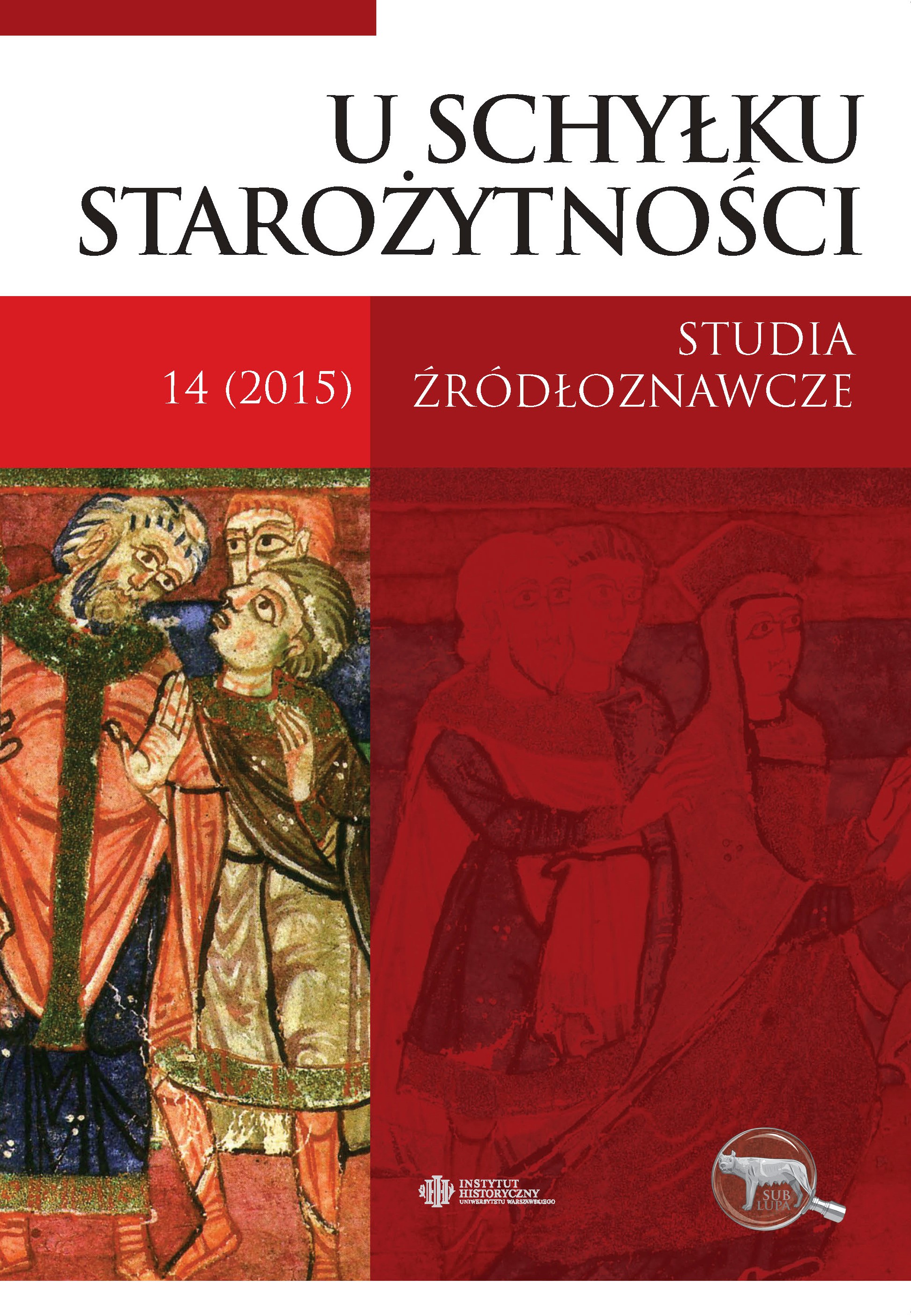Hiszpania wobec sporu o Trzy Rozdziały
Spain and the “Three Chapters” controversy
Author(s): Mateusz BętkowskiSubject(s): Cultural history, Social history, Ancient World
Published by: Wydawnictwo Naukowe Sub Lupa
Summary/Abstract: The “Three Chapters” controversy was a serious threat to the unity of the Church in the 6th century. The direct cause of this dispute was an edict issued by the emperor Justinian (c. 543/544) which anathematised the person and writings of Theodore of Mopsuestia, certain writings of Theodoret of Cyrus and the letter of Ibas of Edessa to Maris. It was an element of the emperor’s attempt to restore religious unity of the Empire, because the condemned bishops were regarded in many church circles as the followers of the Nestorian heresy. However, this step provoked another fierce opposition. First of all, Theodore died in communion with the Church and for many theologians it was unacceptable to antahematize the dead. Second, Theodoret and Ibas were reinstated in their sees by the Council of Chalcedon (451) and their condemnation was seen as an attack on this holy council.The controversy had the strongest impact in Italy and Africa, but its traces could be found in Gaul and Illyricum and it is widely accepted to speak about opposition throughout the West. The aim of this article is to focus on its repercussions in Spain, because so far this problem has not received enough attention. The question of the participation of the Spanish churches in the “Three Chapters” debate is the key to understand their position in the universal Church. It can tell us whether they focused on local problems and remained indifferent to ongoing theological discussions. It allows to take a look at the contacts of the Iberian Penisula with other parts of the Christian world and the means of this communication. Our sources are fragmentary, indirect and difficult to interpret, but they seem to suggest that Justinian’s religious policy did not meet with enthusiasm in Spain and the conflict did not pass unnoticed there.This study focuses in particular on the relations with the rest of Christian oecumene. They were responsible for most of the information about the strife and they were decisive in choosing between two sides of the conflict. The East Roman Empire was the centre of the controversy and the emperors, especially Justinian, tried to impose their religious views. In addition, the imperial troops conquered Southern Spain. Equally important were the connections with byzantine Africa, whose churches led the opposition against the condemnation of the “Three Chapters”. Finally, there is an issue of the contacts with the bishops of Rome, because their strong involvement in the debate caused many tensions in their relations with other churches.
Journal: U schyłku starożytności - Studia źródłoznawcze
- Issue Year: 2015
- Issue No: XIV
- Page Range: 75-125
- Page Count: 51
- Language: Polish

